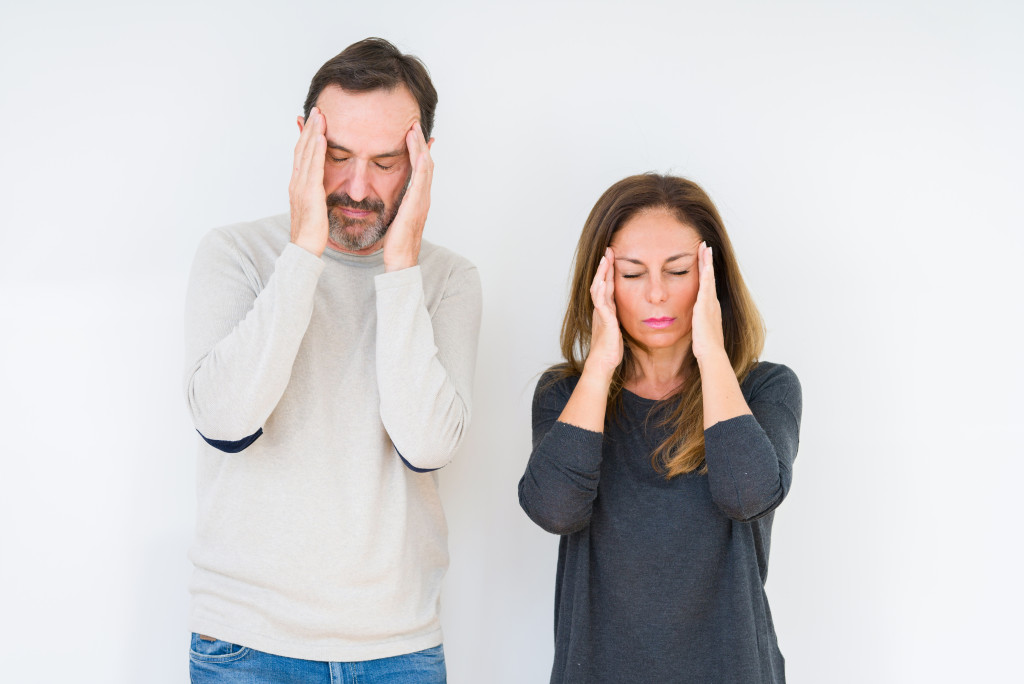Experiencing a headache is not a fun thing. Unfortunately, for some people, headaches are a frequent occurrence. According to a study, 45 million Americans suffer from headaches annually, amounting to 16.54% of the population. There are a variety of causes behind the common headache, some of which may surprise you. Here are five reasons why your family might be experiencing frequent headaches:
Dehydration
Dehydration is one of the most common causes of headaches. If your family members are not drinking enough fluids, they may be dehydrated, leading to headaches. Dehydration doesn’t just sap your energy levels—it can also cause physical pain. As dehydration sets in, your brain begins to contract and pull away from the skull. This puts pressure on nerves and causes throbbing headaches.
The best way to address this is by ensuring that everyone drinks enough water throughout the day. Avoid drinking sugary drinks and alcohol, as these can cause more dehydration. Always bring a water bottle when you leave the house, and encourage everyone to do the same.
Caffeine Withdrawal
Caffeine is a stimulant that can help reduce fatigue and make people feel more alert. However, if people consume too much caffeine or suddenly stop consuming caffeine, they may experience withdrawal symptoms such as headaches. Caffeine constricts the blood vessels around the brain, and when you suddenly stop consuming caffeine, those vessels expand quickly. This sudden change in pressure can cause a headache known as a withdrawal headache.
To combat this, ensure that everyone is not consuming too much caffeine. Also, if someone does need to reduce caffeine intake, do it gradually over a few days so the body can adjust. Abruptly cutting off caffeine can cause uncomfortable withdrawal symptoms.
Stress
Stress is another common cause of headaches. If anyone is under a lot of stress, it can lead to tension headaches. When your neck and scalp muscles tense or contract, you get tension headaches. These muscle responses are often triggered by stress, anxiety, head injury, or depression. They can affect people of any age but is more likely to happen to adults and older teenagers—especially women since it has a genetic element. You can help manage tension headaches by applying ice packs or going for a hot shower.
You can also help manage stress by encouraging everyone to take breaks throughout the day, exercise regularly, and get sufficient sleep each night. It would also be helpful to discuss any worries or concerns that may be causing stress. You can do activities as a family, such as going for a walk or playing a game, which can also help reduce stress levels.

Temporomandibular Joint (TMJ) Disorder
TMJ disorder, also known as a temporomandibular joint syndrome or myofascial pain dysfunction, is a disorder of the jaw joint. It can cause pain in the face and head, and it’s all too common—nearly 10 million Americans suffer from TMJ disorder. It does not only cause headaches; it also causes jaw pain, jaw popping and clicking, earaches, and a feeling of fullness in the ears.
TMJ disorder can be caused by jaw injury or jaw misalignment. Anyone experiencing jaw pain or frequent headaches may have TMJ disorder and should consider jaw surgery to correct the issue. Surgery is usually successful but requires a strong commitment to follow-up care and jaw exercises. Treatment for TMJ disorder also includes physical therapy, pain medication, relaxation techniques, and exercises to strengthen the jaw muscles. If you suspect someone in your family has TMJ disorder, seek professional help immediately to prevent long-term problems.
Poor Posture
Poor posture can lead to tension headaches and other types of headaches. Headaches caused by poor posture typically throb in the base of the skull and sometimes flash into the face, especially the forehead. This is because slouching increases pressure on the neck muscles and head. When you have poor posture, it causes tension in your upper back, neck, and shoulders. Here’s what you can do:
- Make sure your back is kept straight when sitting and standing.
- Place a cushion or rolled towel on the small of your back to help maintain proper posture.
- Avoid slouching, hunching over, and sitting too low.
- Take regular breaks from activities like computer work or phone use to prevent tension from building up in the neck and shoulders.
- Do light stretching exercises targeting your neck, back, and shoulders.
- If you’re using a device, position it so that you’re looking down with a straight spine. Drop your shoulders back and down.
Make sure everyone at home is comfortable with their bed and pillow setup. A good sleep posture is also essential for avoiding headaches due to poor posture during the day. If you or anyone is working at home, ensure that your workspace is ergonomically friendly by using a chair and desk setup that promotes good posture.
By following these tips, you can help reduce the risk of headaches caused by poor posture. However, if you or anyone in your family are still experiencing frequent headaches after trying these methods, seek medical advice for proper treatment.

